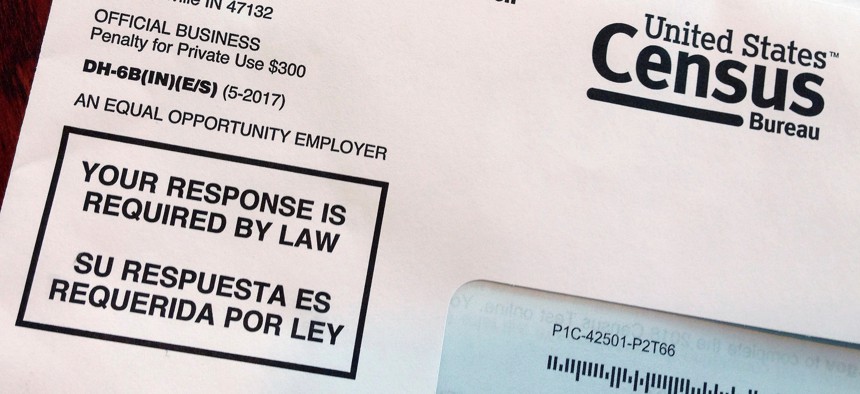Connecting state and local government leaders
COMMENTARY | Local and state governments should take steps now so that next year's count reflects everybody in a region.
Census 2020 officially kicks off in exactly one year. But, we have a long way to go in addressing the significant concern about the accuracy of the count. From falling survey response rates to low unemployment, state and local officials are rightly concerned. If response rates are disproportionately low in an area, the state risks losing Congressional seats and getting a too-small piece of the hundreds of billions in federal money allocated for programs from school lunches to highway planning and construction.
The Census Bureau has worked hard to make a number of important resources available and, luckily, advances in data analytics mean local Census outreach campaigns can be more efficient and effective than in 2010.
A true data-driven Census campaign can be divided into seven steps.
1) Understand who you are trying to reach
The first step in building a data-driven 2020 Census outreach campaign is to understand the population that you will be reaching out to. The Census Bureau releases data about the likelihood that people will respond to the 2020 Census at the block group and tract levels, called the Low Response Score (LRS). Civis helped the Census Bureau develop these scores for the 2020 Census, and they are a great starting point for understanding the population and their propensity to respond.
2) Understand what motivates or scares the community you identified
In late January, the Census published the Census Barriers, Attitudes, and Motivators, a nationally representative survey of 17,500 people and a set of 42 focus groups that were undertaken with groups that are traditionally hard to count in the Census.
3) Develop messages based on the Census’ identified motivators and barriers
Census studies are a treasure trove of information for state and local governments that are trying to create an outreach plan. They split out the results of both studies into different, hard-to-count groupings and focus on two factors: 1) what makes them difficult to count and; 2) which is the best message to encourage participation in the 2020 Census. Develop initial messaging based on this guidance in addition to general knowledge of the community.
4) Test your messaging
It’s understood that testing messages is a critical part of any marketing campaign—what works for one group might not resonate with another. There are two primary ways to do this—a qualitative method (focus groups) and a quantitative method (online surveys). Either way, one thing to watch out for is backlash—as in, a certain message makes a specific group less likely to respond to the Census. In our national research, we found that a message related to data security (even a positive message) actually suppressed intent to respond to the Census. Underscoring the importance of ensuring that all messages are carefully worded. Of course, regional differences are key to success, so each community should be testing against their specific population.
5) Find the best carriers of the messages
Almost as important as what you’re saying is where you’re saying it. Mass communication channels like TV and billboards are helpful for spreading general awareness among those who are easily motivated but need a reminder to fill out the form. Hard-to-count populations need to be met where they are via more targeted carriers like digital properties, mailers, canvassing, or flyers in specific neighborhood spots. The hardest to count, though, are those who don’t want to be found, and won’t trust a government-sponsored message. The only way to reach these people in an impactful way is by engaging trusted partners, a third party group that is trusted by that sub-group (for example, a leader of a community organization).
6) Deploy messaging
This is pretty self-explanatory for most paid advertising efforts, but when it comes to canvassing or engaging trusted third parties, it is important to make their limited time valuable. Take time to prepare some form of toolkit in advance, with key messages as well as answers to anticipated questions. Making it as easy as possible for these individuals means they can spend more time out in the community, not figuring out what they need to say.
7) Optimize in real-time during Census fielding
During the fielding of the census, the Census Bureau releases data that shows how many people are counted in each area. Develop a model in advance so it’s easy to identify which communities are underperforming in terms of the count and then reallocate resources in real time to the areas that need it the most.
As cities and states build an outreach plan, it is wise to use all available resources: Census Bureau assets, data from the 2020 CBAMS survey and focus groups, and research that others are creating at the national level. More information = a more accurate localized segmentation = a stronger foundation for a data-driven outreach campaign.
Chris Dick is director of Government Analytics at Civis Analytics.

NEXT STORY: 5 steps to accelerating insights with predictive analytics



